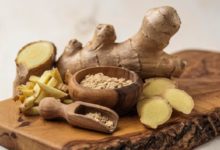Natural Remedies for Cough: Effective and Safe Solutions

When a persistent cough disrupts your life, turning to natural remedies for relief can be a wise choice. In this comprehensive guide, we’ll delve into a plethora of holistic solutions that can help you manage coughs effectively and safely. From soothing herbal teas to simple lifestyle changes, this article has got you covered.
Natural Remedies for Cough
Honey and Lemon
Honey and lemon are a powerful combination when it comes to soothing a cough. The natural sweetness of honey helps to coat and soothe the irritated throat, reducing the urge to cough. Lemon, on the other hand, provides vitamin C and antioxidants, which can boost your immune system.
To prepare this remedy, mix a teaspoon of honey with the juice of half a lemon in a cup of warm water. Sip on this mixture throughout the day for relief.
Ginger Tea
Ginger is well-known for its anti-inflammatory and antimicrobial properties. It can help ease cough symptoms, especially if they are related to a cold or respiratory infection.
To make ginger tea, slice fresh ginger into thin pieces and add them to boiling water. Let it steep for about 5-10 minutes, then strain and enjoy. You can sweeten it with honey if desired.
Steam Inhalation
Steam inhalation is an effective way to loosen mucus and relieve congestion.
Boil a pot of water, then carefully lean over the steam, draping a towel over your head to trap the steam. Inhale deeply for about 5-10 minutes. Be cautious not to get too close to the hot water to avoid burns.
Salt Water Gargle
Gargling with salt water is a simple yet effective remedy for soothing a sore throat and reducing coughing.
- Dissolve half a teaspoon of salt in a glass of warm water.
- Gargle with the saltwater for 30 seconds.
- Spit out the saltwater after gargling.
- Repeat this process several times a day for relief.
Eucalyptus Oil
Eucalyptus oil is well-known for its minty, menthol-like scent, which can provide relief from chest congestion and coughing.
- Add a few drops of eucalyptus oil to a bowl of hot water.
- Lean over the bowl with a towel covering your head.
- Inhale the steam deeply for about 5-10 minutes.
- Be careful not to touch the hot water directly.
Peppermint
Peppermint’s menthol properties can help relax the muscles in your throat, reducing coughing. You can prepare peppermint tea by steeping fresh or dried peppermint leaves in hot water for about 5-10 minutes. Alternatively, peppermint lozenges are readily available and can provide relief on the go.
Turmeric and Milk
Turmeric’s anti-inflammatory properties combined with warm milk can help alleviate cough symptoms, particularly before bedtime.
- Heat a glass of milk.
- Add a pinch of turmeric to the warm milk.
- Stir well to ensure the turmeric is evenly mixed.
- Sip it slowly to ease your cough, especially before bedtime.
Onion Syrup
While not the most pleasant-tasting remedy, onion syrup is highly effective due to its antimicrobial properties.
To make it, slice an onion and layer it with honey in a glass jar. Leave it overnight, and you’ll have a potent cough syrup. Take a spoonful as needed to reduce coughing.
Licorice Root
Licorice root is a soothing herb known for its effectiveness in calming coughs and irritated throats. It can be consumed as a tea or in the form of lozenges. The natural sweetness of licorice can also make it a tasty remedy.
- Prepare licorice root tea by steeping licorice root in hot water.
- Strain the tea and enjoy its soothing properties.
- Alternatively, use licorice root lozenges for convenience.
Marshmallow Root
Marshmallow root contains mucilage, a substance that can coat the throat and soothe irritation. You can find marshmallow root in various forms, such as teas or capsules, in health food stores. Consuming this remedy can provide relief from a persistent cough.
- Marshmallow root can be found in various forms such as teas or capsules.
- Follow the instructions on the product label for the recommended dosage.
- Marshmallow root provides a coating effect that soothes throat irritation.
These are just a few of the natural remedies for cough. Experiment with different remedies to find the one that works best for your specific cough and symptoms. Always consult with a healthcare professional if your cough persists or worsens.
Steamy Showers
Taking a hot, steamy shower can be a quick and effective way to relieve cough symptoms. The warm, moist air can help to loosen mucus and ease chest congestion. Simply stand in the shower, allowing the steam to fill the bathroom, and take slow, deep breaths. It’s an excellent method to provide immediate relief, especially during cold and flu seasons.
Cough Drops
For on-the-go relief, natural cough drops can be a convenient solution. Many cough drops are available that are made with natural ingredients like honey, ginger, or eucalyptus. These ingredients not only help soothe the throat but also provide a pleasant taste while reducing coughing. Keep some in your bag or pocket for whenever coughing strikes.
Hydration
Staying well-hydrated is essential when dealing with a cough. Water, herbal teas, and broths can help keep your throat moist and soothe irritation. Warm liquids, in particular, can be very soothing. Drinking enough fluids also supports overall health and helps your immune system function at its best.
Avoid Irritants
Coughing can be aggravated by environmental irritants like smoke, whether it’s from cigarettes or secondhand exposure. To alleviate your cough and protect your respiratory health, it’s crucial to avoid these irritants. If you’re a smoker, consider quitting to experience significant improvements in your coughing.
Rest and Sleep
Adequate rest and sleep are essential for your body to recover from a cough. When you’re well-rested, your immune system functions more effectively, and your body has a better chance of fighting off infections. Ensure you get enough sleep, and if possible, take short naps during the day to further support your recovery.
Elevate Your Head
If nighttime coughing is a major issue, try sleeping with your head slightly elevated. This position can help prevent postnasal drip, which often worsens coughing at night. You can achieve this by using extra pillows to prop up your upper body, or by using an adjustable bed if you have one.
Humidify Your Space
Using a humidifier in your bedroom can be a game-changer when it comes to cough relief. It adds moisture to the air, preventing your throat from drying out, which can exacerbate coughing. Choose a cool-mist humidifier for safety and use it consistently for better results.
Dietary Considerations
Certain foods can exacerbate cough symptoms, so it’s essential to be mindful of your diet. Spicy dishes, for instance, can irritate your throat, making you cough more. Additionally, some people may be sensitive to dairy, which can lead to increased mucus production. Pay attention to how specific foods affect your cough, and consider making dietary adjustments accordingly.
Aromatherapy
Aromatherapy with essential oils like lavender and chamomile can promote relaxation, which may help reduce stress and, in turn, alleviate coughing. Diffuse these oils in your living space or use them in a relaxing bath to experience their calming effects.
Herbal Remedies
Several herbs have natural cough-suppressing properties, making them valuable remedies. Thyme, sage, and oregano, for example, can be used in teas or inhaled as steam to reduce coughing. These herbs have been used for generations to ease respiratory discomfort.
Acupressure
Applying gentle pressure to specific acupressure points on your body can provide relief from cough symptoms. This traditional Chinese practice targets areas associated with lung health and can help alleviate coughing. Consult with a qualified acupressure practitioner to learn the most effective techniques for your situation.
Breathing Exercises
Practice deep breathing exercises to enhance lung capacity and reduce coughing. Breathing deeply can help clear mucus from your airways and improve overall lung function. Try inhaling deeply through your nose and exhaling slowly through your mouth several times a day to experience the benefits.
Immune-Boosting Foods
Incorporating immune-boosting foods into your diet is a proactive approach to prevent coughs. Foods rich in vitamin C, such as citrus fruits, can help strengthen your immune system, reducing the risk of getting sick. Garlic and yogurt also have immune-boosting properties, making them excellent additions to your diet.
Homeopathy
For those interested in alternative medicine, homeopathy offers personalized remedies to address specific cough symptoms. Consulting a homeopathic practitioner can help you find the right remedy that matches your condition, providing a holistic approach to managing your cough.
Frequently Asked Questions (FAQs)
Are natural remedies for cough safe for children?
Many natural remedies are safe for children, but it’s best to consult a pediatrician for guidance.
Can I use multiple remedies at once?
It’s advisable to focus on one remedy at a time to see what works best for your cough.
How long should I try a natural remedy before seeking medical help?
If your cough persists for more than a week, consult a healthcare professional.
Is it okay to use natural remedies alongside prescribed medications?
Consult your doctor before combining natural remedies with prescribed medications.
Is calamansi juice good for cough?
Calamansi juice, rich in vitamin C and antioxidants, may help soothe a cough and boost the immune system, but it should be consumed as part of a balanced diet and not relied upon as the sole remedy for a persistent cough.
To drink calamansi for cough, squeeze the juice of a calamansi fruit into a glass, add a little warm water and honey for taste, and then drink it slowly, providing relief from cough symptoms.
Are there any side effects to natural remedies?
While natural remedies are generally safe, it’s possible to have allergies or reactions. Be cautious and discontinue use if adverse effects occur.
Can natural remedies prevent coughs?
Some remedies can help boost your immune system, reducing the risk of getting sick.
What is the fastest way to cure a cough?
The fastest way to cure a cough is to employ a combination of soothing remedies, including hot ginger tea and honey, steam inhalation, and staying well-hydrated to keep the throat moist and alleviate irritation. Additionally, rest and avoiding irritants like smoke can speed up the recovery process.
Conclusion
In your quest for effective and safe relief from a troublesome cough, consider the holistic approaches provided in this article. Natural remedies offer a gentle yet potent means to alleviate your symptoms.
Remember that natural remedies for cough can be highly effective for many people. It’s essential to monitor your symptoms and consult a healthcare professional if your cough persists or worsens, as it may indicate an underlying medical condition. Stay well and take a natural, gentle approach to managing your cough for a healthier and more comfortable life.








